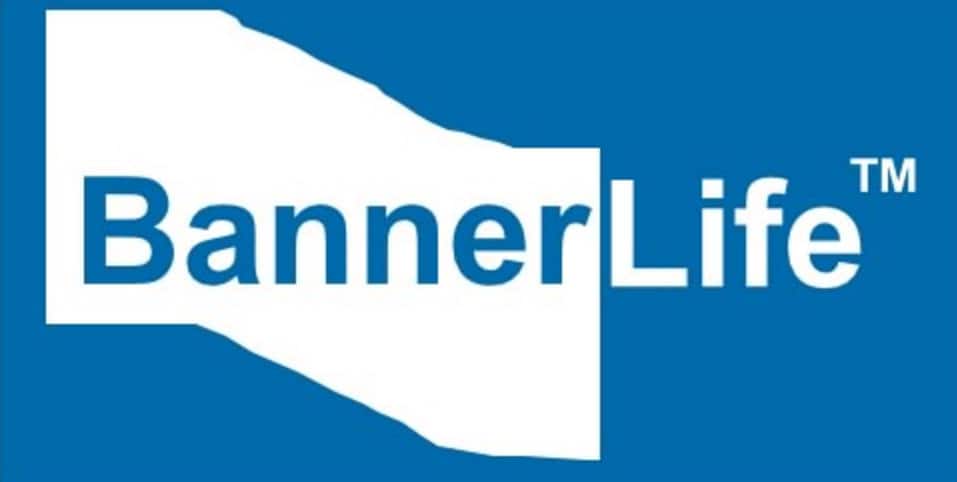Term Life Insurance Quotes
If you are a police officer or first responder, you’ve likely already determined that life insurance for police officers or first responders can be expensive if you choose the wrong insurance company.
Every shift you are out there protecting the citizens in your community, there is always a risk that you might be injured or in the worst case, never make it home.
Knowing this, it’s critical that you take the necessary steps to ensure that if you don’t make it home, your surviving loved ones will have the financial resources to continue.
Many police officers and first responders are under the impression that life insurance companies prefer to pass insuring police officers, but the good news is that insurance companies understand the risk and many will compete for your business.
To put it bluntly, a lot more people die from car accidents each year than police officers getting killed on the job. Finding affordable life insurance if you’re a police officer is surprisingly easy.
Easy Article Navigation
- Why is Life Insurance Important for Police Officers?
- Are Police Officers Considered High Risk?
- Are Policies through Work Enough?
- How Much Life Insurance Do Police Officers Need?
- How do Insurance Companies Determine the Premium?
- What types of Life Insurance are Available?
- Best Insurance Companies for Police Officers
- Frequently asked Questions
Why is Life Insurance Important for Police Officers?
Let’s start with an important and confirmed statistic from Officer Down Memorial Page (odmp.org). In 2020, 359 police officers were killed in the line of duty, of which, 332 were men and 27 were women.
Now, compare those stats with the number of people who died as a result of a car accident in 2020 which is 1.36. Certainly, many of those accident victims may have been police officers, but you’ll likely understand one risk compare to the other.
Whether a police officer dies on duty protecting the public or as a result of a disease or in an unrelated job accident, they must have life insurance so that loved ones will not be financially devasted after a loss.
The risky issues that police officers must deal with while on the job are more than the average employed individual must deal with:
Responding to Traffic Accidents
Officers who work in the traffic division spend the majority of their time on highways and county roads or those of the city they are charged to patrol. This certainly puts them at risk when assisting at a roadside collision or dealing with an offender who attempts to escape in a vehicle.
On the job Careless Shootings
Since a police officer has been trained and then authorized to carry a weapon, being on duty or sometimes off duty exposes them to the risk of being shot at by a perpetrator or even friendly fire because of a crossfire situation.
Acting as First Responders
It is certainly not unusual for a police officer to be placed in a position of a first responder. Whether it’s a bank robbery in progress or a collapsing bridge, police officers will assist other first responders by getting involved in an investigation or canvassing a community to gather facts and evidence.
In either situation, the risk is part of the job and loved ones must be financially protected.
Are Police Officers Considered High Risk?
Being employed as a police officer entails that the officer works in many different situations throughout their employment.
An officer may be working vice for several years and then be assigned as a school resource officer. When an officer is onboarded after graduating from the academy, just like a service member, they will likely be assigned to various departments or divisions during their employment.
But when we considered the statistics mentioned previously and consider the overall risk of being a police officer, insurance companies understand that, although police officers do take risks on the job, overall, the occupation isn’t considered high-risk by most insurance companies.
Are the Life Insurance Policies Provided through Work Enough for Police Officers?
In a nutshell, no. Unless an officer is single and there are no children. Although employer-sponsored life insurance is a great benefit to take advantage of, it will fall short of your surviving loved ones’ financial needs if that is the only life insurance an officer has.
There are three primary drawbacks to employer-sponsored life insurance:
- The death benefit is typically limited to a multiple of an officer’s annual salary and in many cases, the limit is not sufficient to replace the deceased officer’s salary for more than a few years.
- Most life insurance policies offered by the department or union pay a lower benefit if the officer dies while off duty.
- In general, an employer-sponsored life insurance policy is not portable. This means that when the officer retires (most can after serving 20 years), the coverage will not follow the officer.
How much Life Insurance Do Police Officers Need?
If an officer has a family, and most do, the purpose of his or her life insurance policy will be to replace the officer’s income so surviving family members can financially continue after the officer’s death.
Replacing your income is more than just buying a multiple of your annual salary. When you are determining the death benefit needed to replace an officer’s income (especially if he or she is the sole breadwinner in the household) the following financial obligations should be considered:
- The surviving family’s annual living expenses
- The mortgage balance, if any, on the family residence
- Any personal debt
- The estimated cost of college tuition for any children in the household
- Estimated contributions needed for a spouse’s retirement fund
- The estimated cost of the funeral and burial service
We have found over the years that in almost every case, the calculated replacement income is much higher than a multiple of 3 or 4 times the annual salary of an officer.
What Types of Life Insurance Policies are Available for Police Officers?
Police officers will have the same access to life insurance products as any other individual.
Although there are quite a few types of life insurance policies available, many of them are hybrids of the basic types of insurance policies available.
Term Life Insurance
Term life insurance continues to be the most affordable type of life insurance for income replacement.
Most companies will offer term policies with policy terms of five to thirty years. And, in the last few years, several companies began offering policies with terms of up to 35 and 40 years.
Since a term policy doesn’t provide permanent coverage and there is no cash component attached, term life insurance will always be the most affordable choice.
Permanent Life Insurance
Permanent life insurance guarantees a death benefit for the life of the insured as long as premiums are paid. A permanent policy (sometimes called cash-value life insurance) also has a cash component that will build value over time and earns tax-deferred interest based on the investment performance of the insurer issuing the policy.
The two most popular permanent life insurance policies are whole life and universal life.
- Whole life insurance provides permanent insurance coverage for the insured’s lifetime and cannot be canceled by the insurer as long as premiums are paid. Additionally, once the policy is issued the premium can never increase and the policyholder can access the cash whenever needed and for any reason.
- Universal life insurance is similar to whole life because it can provide permanent coverage if properly funded. The difference between the two is that universal life policies are flexible, meaning the premium payments and death benefit can be changed by the policyholder. Generally, universal life is cheaper than whole life and typically earns more interest on the cash value account.
No Exam Life Insurance
No exam life insurance is typically term life insurance but is also available as whole life insurance.
No exam policies are generally preferred by applicants who are healthy and prefer to forgo the inconvenience and privacy issues associated with a life insurance medical exam.
Moreover, since the medical exam is not required, the insurance company can typically issue a policy in a matter of days rather than weeks and months when an exam is required.
The premiums are somewhat higher with no exam policies since the insurance company is accepting a higher risk because of waiving the medical exam.
How do Insurance Companies Determine Your Premium?
A police officer’s life insurance policy is underwritten virtually the same as any other applicant. Certainly, age and health are the most dominant factors for rating but many carriers use a supplemental questionnaire once you disclose that you are in law enforcement.
You can expect to provide some information to the insurer on the following topics:
-
- Do you carry a firearm? Since an armed officer may be a higher risk than an unarmed officer, your insurance company will ask about when you are and when you are not carrying a firearm.
- Do you often go out in the field? Since many officers are assigned to “desk duty” either permanently or temporarily, the insurer will ask if you ever go to the field for tasks like investigations, canvassing, and questioning possible witnesses to a crime, or crime scene investigation tasks.
- What safety measures do you take? These questions are directly related to following established protocols and whether or not you take additional safety measures while on the job.
- Do you handle major crime cases? Certainly, major crime cases can be more dangerous than misdemeanor cases so the company will likely ask if you work major crimes and what is your average monthly or annual caseload.
- What is your specialty? If you have gone through special training over and above normal academy training, the insurer will ask in what field you have special training.
Best Life Insurance Companies for Police and Law Enforcement Officers

| A.M. Best | S&P Global | Fitch | Moody’s |
| A+ | AA- | A+ | A1 |
Pros:
- Competitive pricing for substandard health classes
- Term policies can be converted to permanent policies
- Offer 35 and 40-year level term policies
- Policies are renewable up to age 90
Cons
- Limited non-medical underwriting options
- Much higher rates for smokers and smokeless tobacco users

| A.M. Best | A+ |
| Standard & Poor’s | AA- |
Pros:
- 35 and 40-year term policies available
- Consistently listed in the top 5 for lowest rates
- Outstanding customer and claims service
- Offers temporary coverage for qualified applicants
- Offers no medical exam life insurance option
Cons:
- A maximum face amount of $1,000,000
- Accelerated Death Benefit not included
- Does not offer Whole Life insurance

| A.M. Best | Standard & Poor’s | Moody’s | Fitch Ratings |
| A+ | AA- | A1 | A+ |
Pros:
- Large selection of Term and permanent cash-value products
- Streamlined underwriting process that delivers rapid policy decisions
- Online applications with an average approval time of fewer than 21 days
- Liberal and competitive underwriting guidelines for applicants with various health conditions
- No medical exam policies available for healthy non-smokers
Cons:
- Lincoln National does not offer whole life insurance.
- Although claims can be filed online, typical service requests cannot be made online.
- Although a children’s term rider is available, you cannot buy a stand-alone policy for a child.
Frequently Asked Questions
Life insurance for police officers is a type of insurance coverage specifically tailored to meet the unique needs and risks faced by individuals working in law enforcement. It provides financial protection for their loved ones in the event of their death.
Police officers are often exposed to hazardous situations and high-risk environments in the line of duty. Having adequate life insurance coverage is essential to ensure that their families are financially secure if they were to pass away.
There are several types of life insurance policies that police officers can consider, including term life insurance, whole life insurance, universal life insurance, and permanent life insurance. Each type has its own features and benefits, so it’s important to choose the one that best fits your needs.
Some police officers may have the option to enroll in an employer-sponsored life insurance plan offered by their law enforcement agencies or insurance providers. This can be a convenient and cost-effective way to secure life insurance coverage.
The amount of life insurance needed for police officers can vary depending on individual circumstances. Factors such as income, expenses, and financial goals should be considered to determine the appropriate death benefit amount.
When choosing a life insurance company, police officers should rely on the advice of an experienced and reputable life insurance professional representing many of the highest-rated companies. Since independent insurance agents do not work for the companies they represent, they will put the needs of their clients or prospective clients first and foremost.
Get a Free Life Insurance Quote Today!
For more information about Life Insurance for Police Officers and First Responders, call our insurance professionals at 866-868-0099 during normal business hours. To get started now, click on our instant quote button on the right side of the page to compare prices with multiple highly-rated life insurance companies.
Term Life Insurance Quotes
Last Updated on August 19, 2024 by Richard Reich

